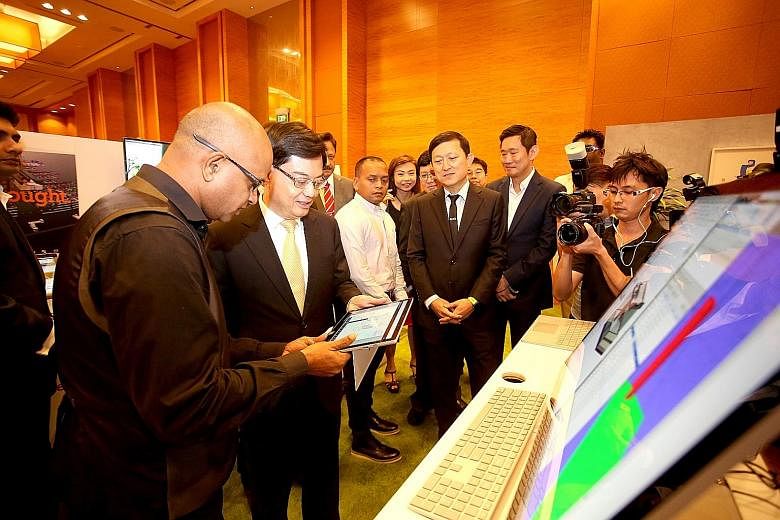The Government will continue to monitor the construction industry and adjust the pace of public-sector projects to facilitate the transformation process.
"We have also reviewed our tender evaluation frameworks to place a greater weightage on quality," said Finance Minister Heng Swee Keat.
"This will help to curb excessive price competition and recognise firms for consistent good performance."
Mr Heng was addressing industry players at the annual conference jointly held by the Board of Architects and the Association of Consulting Engineers Singapore yesterday.
Last year, the Government set aside $150 million for the Cities of Tomorrow research and development programme - a collaboration between the Government, the research community and the industry to develop innovative, tangible urban solutions for a more liveable, sustainable and resilient city.
This year, it announced the expansion of the National Robotics Programme to cover the built environment and construction sectors, to develop robotic solutions to transform work processes in areas such as design for manufacturing and assembly.
This is part of a broader effort to tap the research, innovation and enterprise capabilities in research institutes, universities and polytechnics to help local companies innovate and stay competitive.
Flagging three major trends that will shape the built-environment sector in Asia, Mr Heng noted that as the economic centre of gravity shifts to Asia, the urbanisation trend and the building trend will grow very sharply in this part of the world - be it China's Belt and Road Initiative on building infrastructure or the rate of urbanisation.
To accommodate a growing population, Asia will have to urbanise rapidly and rejuvenate its towns. On that note, "the number of towns that will grow will be extremely significant", he added.
At the same time, climate change is spurring the deployment of green technology and future-proofing of buildings and infrastructure. Mr Heng said that Singapore, as a little island, has to take this challenge seriously.
Apart from the carbon tax that has been announced, Singapore will have to redouble its efforts on this green movement, Mr Heng stressed.
"The third major thing that is happening is the technology. The pace of progress in technology, including in the built environment," he said. "The Internet of things, the ICT (information and communications technology) movement is going to change the way that we manage buildings, the way that we build buildings in the first place, the way we manage, maintain and operate buildings."
Mr Heng pointed out that technological development is most exciting because it will help to multiply the human capabilities that Singapore has.
"We must deepen capabilities in individual firms so that every firm has that muscle to compete and to do well."

